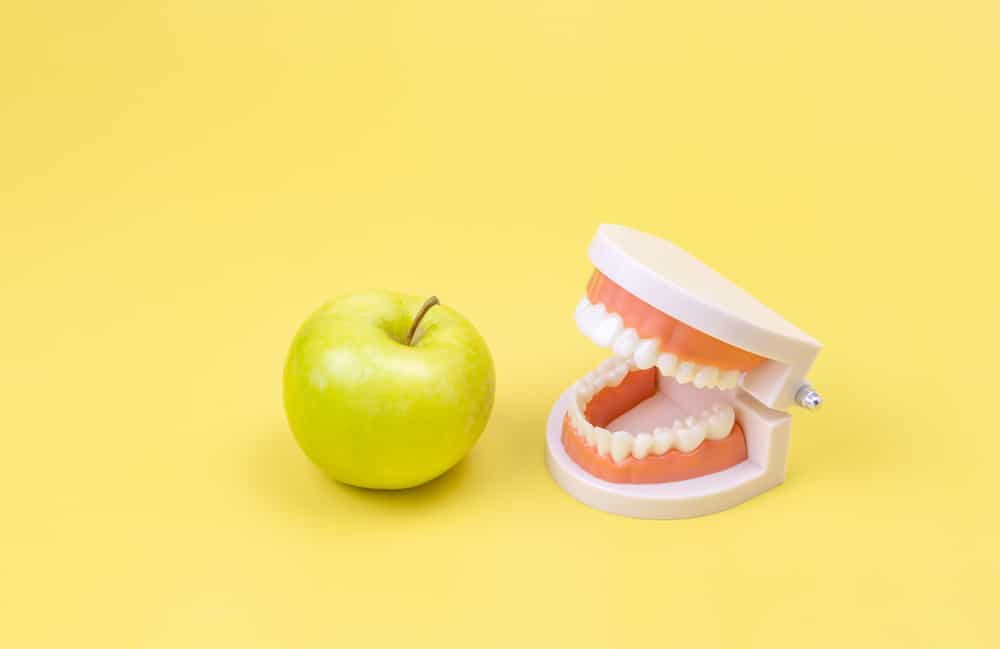After A Dental Implant Surgery
Can I Eat Right After the Dental Implant Surgery?
Following the insertion of dental implants, gauze pads are inserted in your mouth. The gauze pads can be taken out an hour after surgery to allow you to eat something.
You must drink cold beverages and avoid hot foods and drinks for the first 24 to 48 hours after surgery. It would be best if you refrained from using a straw to drink or a water bottle that needs suction for few weeks. If you had bone grafting before the surgery, the restriction is extended to a month.
You must follow the weekly dietary recommendations to facilitate the proper healing of the dental implant placements.
You have to be on a soft diet for the first 3-4 months after the placement of dental implants. It enables the dental implants to bond with your jawbone while you wear a provisional prosthesis that prevents you from chewing rough or crunchy foods. If you’re not sure what a soft diet is, many recommendations are given below for your convenience.
What Foods Not To Eat After Dental Implant Surgery?
Following foods should be avoided for at least a week after implant surgery to prevent damaging your implant and delaying the healing process:
- Chewy foods, like raw vegetables and steak.
- Foods that are crunchy, like chips.
- Sticky foods, like caramel and taffy.
- Foods that are chewy, like Gummies and bagels.
- Foods that spicy, like Hot peppers and salsa.
- Foods that are acidic and hot, like coffee, oranges, and tomatoes.
- Foods that are sugary, like colas.
What Food to Eat Immediately After Dental Implant Surgery?
Your teeth and jaw will be in a precarious condition after the dental implant is inserted. That is why it is essential to follow a soft-food diet for the first 24 hours following surgery. We suggest you add the following recipes to your meals:
Smoothies are filling, nutritious, and simple to load yourself with essential vitamins and antioxidants for better recovery. Best of all, smoothies do not require chewing, making them a perfect post-surgery meal choice.
As you won’t be able to bite into an apple at this stage in your care, applesauce will offer many of the same nutrients without causing damage to your implant.
While hot foods and liquids should be avoided, cold soups, like a gazpacho, can be enjoyed.
When drinking beverages, you mustn’t use a straw. The suction force creates negative pressure, dislodges blood clots at the surgery site, and impeding healing. You should also abstain from alcohol and smoking for at least a few days.
What to Eat Few Days Following the Dental Implant Surgery?
You can gradually reintroduce solid foods into your diet after your jaw heals. Dr. Adatrow suggests eating meals high in protein and other vital nutrients to hasten the recovery. He recommends the following foods:
- Eggs/Omelets — Eggs are rich in protein, Omega-3, and easy to chew. To make a well-balanced meal, combine them with vegetables and make an omelet.
- Potatoes — One of the most challenging aspects of adhering to a soft-food diet is the lack of choice. Potatoes are a highly versatile food that can be cooked in various ways while retaining their soft texture.
- Ground beef, chicken, and fish — Dr. Adatrow suggests gradually reintroducing meat into your diet if you consume it. Start with softer meats such as chicken, fish, and ground beef, which can be thinly chopped and added to salads, pasta, and other dishes for a lovely meal.
- Milk/Cheese/Yogurt — Dairy products contain protein and calcium, which assist in the recovery period and protect your teeth healthy.
Why is it essential to prioritize protein consumption following dental implant surgery?
Protein is needed for the recovery process. Protein is necessary to develop and repair tissues damaged by dental implant surgery, but it also aids the body in fighting infection. Dr. Adatrow suggests that you eat more protein than you usually would when recovering from dental implant surgery to increase your body’s healing properties.
Looking for the best dental implant specialist in Germantown, TN?
Dr. Adatrow can help!
If you have any further questions about oral health, you can schedule a consultation with Dr. Adatrow. Dr. Adatrow has more than 18 years of experience in placing dental implants, with a success rate of over 97%, and can provide you with the best possible dental treatment. He is a Board-Certified Prosthodontist and Periodontist. Please contact our office to schedule your consultation now!

